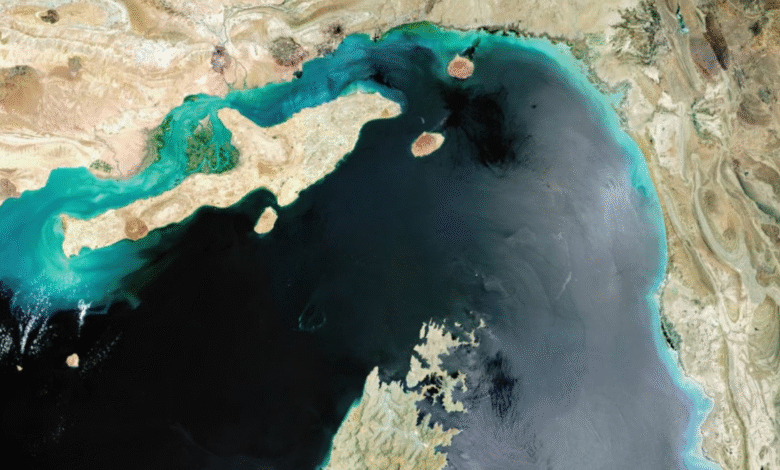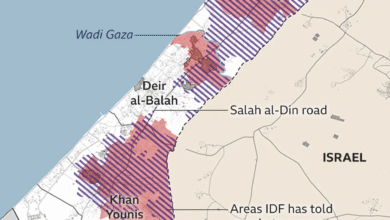China Iran Relations: Rethinking Strategy in the Middle East

China-Iran relations have entered a significant phase as both nations, seeking to fortify their global standings, deepen their partnerships amidst a shifting geopolitical landscape. China’s foreign policy increasingly revolves around securing vital resources, with Iran emerging as a key ally, especially in the context of the Iran nuclear deal and the ongoing Middle East conflict. The Strait of Hormuz, a crucial artery for global oil transport, plays a pivotal role in this collaboration, as China aims to ensure uninterrupted access to Iranian oil. With the Belt and Road Initiative as a backdrop, Beijing is not only augmenting its economic ties but also strategically positioning itself against U.S. influence in the region. As tensions escalate and partnerships solidify, the implications for both China and Iran could redefine their roles on the international stage.
The alliance between Beijing and Tehran presents an intriguing dynamic in contemporary international relations, especially as the geopolitical chessboard in the Middle East evolves. As China cautiously navigates its foreign relations, the collaboration with Iran signifies a strategic maneuver to enhance its influence, particularly in light of energy security and regional stability. The complexities of the Iranian nuclear discussions, combined with ongoing conflicts, underscore the significance of the Strait of Hormuz for both nations. By intertwining their economies through initiatives like the Belt and Road, these partners are not only bolstering their security frameworks but also demonstrating a united front against Western pressures. Thus, the relationship between these two powers is pivotal in understanding the emerging order in the global arena.
Understanding China Iran Relations
China’s relations with Iran have evolved significantly over the last few years, marked by strategic partnerships and military cooperation. Initially, Beijing’s support for Tehran was unequivocal, particularly as tensions rose over the Iranian nuclear program and the U.S. sanctions. However, recently, China’s Foreign Minister Wang Yi has displayed a more measured approach, reflecting Beijing’s complex position in the Middle East. By balancing its support for Iran with a pragmatic focus on economic interests, China aims to maintain stability in a region where it has substantial investments and strategic goals.
The growing military exercises between China and Iran highlight a deepening cooperation. In 2021, the two nations solidified their partnership with a 25-year strategic agreement, signaling mutual commitments in economic, military, and security domains. This relationship is not just a bilateral engagement; it is also a cornerstone of China’s broader foreign policy in the Middle East, allowing Beijing to assert itself as a key player in the geopolitical landscape, particularly in the face of U.S. influence.
Frequently Asked Questions
What is the significance of China Iran relations in the context of the Iran nuclear deal?
China Iran relations play a crucial role in the context of the Iran nuclear deal, as China has been a supportive ally for Iran amid negotiations. Beijing’s involvement is significant due to its position as a permanent member of the UN Security Council, and its stance has helped Iran to sustain its economic ties despite Western sanctions.
How does China’s foreign policy influence the Middle East conflict involving Iran?
China’s foreign policy focuses on maintaining stability in the Middle East, particularly regarding the Iran-Israel conflict. By supporting Iran, China attempts to counterbalance U.S. influence and create a multipolar world, which aligns with its broader geopolitical strategy.
What role does the Strait of Hormuz play in China Iran relations?
The Strait of Hormuz is pivotal in China Iran relations as it is the main transit route for Iranian oil exports to China. Given that a significant portion of China’s oil imports flows through this strait, stability and security in this region are directly tied to Beijing’s economic interests and energy security.
How does the Belt and Road Initiative impact China Iran relations?
The Belt and Road Initiative significantly enhances China Iran relations by integrating Iran’s infrastructure and economic development plans into China’s broader strategy to create trade routes that diminish Western dominance. This partnership includes investment in transportation and energy sectors, facilitating greater trade between China and Iran.
What benefits does China gain from its support of Iran during the Middle East conflict?
By supporting Iran amidst the Middle East conflict, China may gain strategic advantages such as reduced U.S. influence in the region and access to vital oil supplies. This support also allows China to solidify its position as a key player in Middle Eastern geopolitics, especially concerning energy security and trade routes.
How has China’s stance on Iran evolved in light of the changing Middle East dynamics?
China’s stance on Iran has evolved from outright support to a more nuanced approach, acknowledging its limited capacity as a peace broker while still prioritizing economic interests, including access to Iranian oil and stability in the Strait of Hormuz.
In what ways might the closure of the Strait of Hormuz affect China Iran relations?
If the Strait of Hormuz were to close, it could significantly impact China Iran relations by demonstrating China’s reliance on Iranian oil exports while also providing an opportunity for China to benefit from increased prices and supply chain disruptions that may disadvantage U.S. interests.
What are the key economic interests driving China Iran relations?
China’s key economic interests in Iran include securing access to its vast oil reserves, enhancing cooperation through the Belt and Road Initiative, and ensuring the stability of energy trade routes like the Strait of Hormuz, which are crucial for China’s growing energy consumption.
| Key Aspects | Details |
|---|---|
| China’s Support for Iran | Initially strong but has become more measured due to geopolitical nuances. |
| Potential Benefits of Conflict | The closure of the Hormuz Strait could hinder U.S. and EU interests while benefiting China. |
| Military and Strategic Partnership | China and Iran have a 25-year strategic partnership with regular military exercises. |
| Iran as a Key Player in BRI | Iran’s size and resources make it a vital partner in China’s Belt and Road Initiative. |
| Economic Interests | Access to Iranian oil and control over the Strait of Hormuz are crucial for China. |
| China’s Oil Imports | Around half of China’s oil imports pass through the Strait of Hormuz. |
| Future Predictions | China is expected to remain neutral or hands-off in direct Middle East conflicts. |
Summary
China Iran relations have become increasingly complex as Beijing balances its support for Tehran with a cautious approach to geopolitical dynamics. While historically a staunch ally, China’s support has evolved into a more nuanced stance, recognizing the need for strategic advantages and the importance of the Strait of Hormuz for its energy needs. The partnership, underscored by military cooperation and an economic pact, illustrates China’s reliance on Iranian resources amidst heightened regional tensions. As both nations navigate these challenges, the future of their relations is likely to play a critical role in shaping the broader Middle East landscape.




